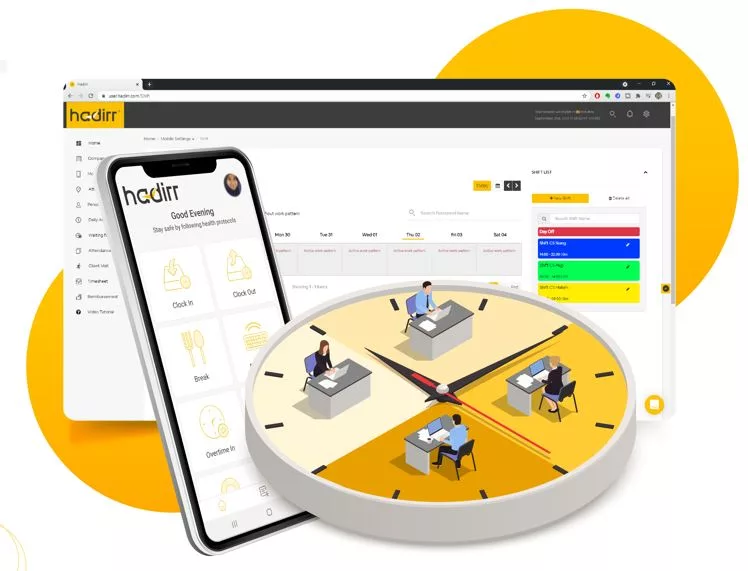Why Foreign Companies in Indonesia Struggle to Hire Top Locals
Foreign companies in Indonesia face a striking contradiction: they’re operating in one of Southeast Asia’s most dynamic growth markets, yet many still struggle to acquire — and keep — Indonesia’s strongest local talent. What appears from the outside as a straightforward hiring issue is, in truth, a complex mix of regulation, competition, cultural nuance, and structural gaps in the labor market. It’s far more layered than salary benchmarks or benefit packages.
For international investors and business leaders mapping Indonesian expansion, this reality matters. It shapes timelines, budgets, and the viability of entire market-entry strategies. The opportunity is enormous, but the talent landscape demands a sharper, more localized approach than many foreign firms anticipate.
The Hidden Complexity Behind Hiring in Indonesia

Hiring Indonesian staff is rarely a straightforward checklist — it’s more like navigating a dense maze of legal, administrative, and operational hurdles that many foreign companies underestimate. What seems like the simple task of reviewing CVs quickly reveals itself as a multi-layered challenge requiring careful preparation and local know-how.
Before a single candidate is even considered, foreign companies must first establish a legal entity and secure the necessary business and employment licenses. These foundational steps alone demand time, precision, and familiarity with Indonesia’s bureaucracy — often far more than newcomers anticipate.
Even after clearing this initial stage, once the entity is established, the complexity continues. Companies must implement payroll systems that accurately calculate salaries and overtime, provide mandatory benefits, and navigate Indonesia’s employment contract landscape — distinguishing between fixed-term contracts (PKWT) and permanent contracts (PKWTT). On top of that, adherence to provincial minimum wage regulations (UMP) is essential, as rates vary significantly across regions.
One misstep — whether misclassifying a contract, underpaying staff, or mishandling benefits — can trigger penalties, labor disputes, or reputational damage.
In short, hiring in Indonesia is not just about finding talent; it’s about preparing the organization to operate within a regulatory and cultural ecosystem that is both intricate and evolving. Many newcomers learn the hard way that the path from posting a job to successfully onboarding a candidate is anything but linear.
Baca juga: 5 Aplikasi Akunting Terbaik di Indonesia untuk Bisnis
The Talent Acquisition Paradox for Foreign Companies in Indonesia

Indonesia has a labor force of 153 million, yet approximately 30% of companies still struggle to find high-quality talent. The paradox reveals the true nature of Indonesia’s employment challenge: this is not a shortage of people, but a shortage of qualifications — a skills gap in Indonesia that runs through the entire labor market.
Research by Populix, analyzing one million job seeker and employer records, confirms this pattern. Around 50% of employers report that applicants’ technical skills remain insufficient, while 35% cite inadequate soft skills. The mismatch is structural: most job seekers simply lack the experience, qualifications, and education level employers demand.
When employers set specific requirements, the disparity becomes stark. Only 16% of available jobs suit Bachelor’s degree holders, while 19% target postgraduates. Meanwhile, 63% of job seekers report that work experience requirements block them from opportunities, and 58% struggle with education level expectations.
This creates a talent mismatch in Indonesia that divides the labor market into two tiers: abundant workers seeking entry-level positions, and desperately scarce mid-to-senior professionals with relevant qualifications. Foreign companies competing for experienced talent face intense pressure — not only from other multinationals but from Indonesian startups, established domestic firms, and recruitment agencies fishing from the same limited pool.
The challenge intensifies in technical sectors. Indonesia faces a deficit of 9 million tech workers from 2015–2030, requiring 600,000 new digital talents annually — yet produces only 278 IT engineers per million citizens. The World Bank estimates that this Indonesia tech talent shortage threatens $21.8 billion in unrealized economic output.
Engineering mirrors this shortfall. Indonesia needs 125,000 additional engineers, yet the engineer-to-population ratio sits at 2,671 per million — far behind regional peers. For foreign firms, this means technical hiring isn’t simply difficult — it’s structurally constrained.
Baca juga: 5 Pertanda Karyawan akan Resign Berdasarkan Absensi
Rising Compensation Costs: When Salaries Outrun Productivity
Wage growth in Indonesia has become a persistent pressure point for multinational operations. Annual salary increments average around 6%. While modest globally, the effect compounds quickly across dozens or hundreds of employees, squeezing margins.
The sharper pressure comes from job movers. Employees switching companies now command 10–15% salary jumps — well above standard increments. This creates a cycle: foreign companies pay premiums to attract talent, only to see those offers become new benchmarks internally.
The disconnect between wage growth and productivity intensifies this challenge. Salary increases of 6–7% often do not translate into proportional performance gains. The market sets wage floors, while value creation remains tied to individual output. Companies that fail to separate these forces face rising labor costs without matching improvements in performance.
Consider a mid-level professional earning IDR 150 million in 2020. By 2025, cumulative 6% annual increments push compensation to IDR 192 million — a 28% rise — while productivity might only rise 10–15%. Multiply this across teams, and the financial impact becomes substantial.
Regional variation adds complexity. Employers operating in both Jakarta and Central Java, for instance, must balance vastly different minimum wages. High performers may be reluctant to relocate to lower-wage regions, complicating workforce planning and deployment.
Indonesia’s labor market is tightening. Wage growth is accelerating, and competition for skilled professionals is intensifying. Foreign companies without robust financial planning and operational efficiency strategies find themselves squeezed — unable to match salary expectations, improve margins, or reduce headcount safely.
Baca juga: Cara Aplikasi Hadirr Optimasi Jadwal Kerja Karyawan
The Talent Retention Crisis

Indonesian employee retention in foreign companies has become a structural issue. PwC’s 2024 Workforce Hopes and Fears survey shows that 20% of Indonesian employees expect to change employers within a year — and those planning to leave are 1.5 times more motivated by upskilling than by salary alone.
This marks a generational shift. Millennials and Gen Z prioritize growth, learning, and psychological well-being. Yet many foreign firms still design roles around predictability, not development. The disconnect is widening into churn.
Data from Michael Page Indonesia highlights this trend:
- 68% of Indonesian employees are willing to forgo pay raises and promotions in exchange for better work-life balance, well-being, and happiness.
- 84% are actively looking for new career prospects over the next six months.
- 43% have been in their current roles for less than two years — signalling short and unstable job tenures.
Professionals increasingly choose employers that offer real growth pathways, continuous learning, flexibility, mental health support, and meaningful cultures. Foreign companies treating these elements as optional lose talent to those who don’t.
Cultural Barriers for Foreign Companies in Indonesia
Working with Indonesian employees requires understanding a workplace culture shaped by hierarchy, communal values, and relational decision-making. Many foreign companies rely on metrics-driven systems that can clash with these norms. When expectations misalign, tensions build quietly — long before performance metrics reveal problems — creating friction that subtly drives turnover.
Foreign managers, especially from Western cultures, often favor direct communication, rapid decisions, and individual incentives. What they view as clarity may be perceived locally as bluntness or exclusion. Indonesian employees expect managers to engage with their personal context, not just their KPIs.
Language adds its own layer. English may be common in urban business environments, but fluency varies widely. Employees who speak comfortably may still struggle with technical nuance or indirect phrasing. Without bilingual documentation or cultural onboarding, miscommunication becomes a silent operational cost.
When expatriate headcount is high, tensions deepen. Local teams may view expats as short-term contributors with limited cultural understanding. This “us versus them” perception weakens loyalty and hastens turnover.
Baca juga: 7 Metode Absensi Karyawan, Mana yang Paling Efektif?
The Competitive Marketplace: Talent Wars From Every Direction

Foreign companies in Indonesia must compete not only with other multinationals but with:
- long-established domestic conglomerates with strong employer brands
- Indonesian tech companies and startups offering speed, equity, and career acceleration
- recruitment agencies and PEOs aggressively mobilizing talent
- other foreign firms offering similarly attractive compensation
The result is a labor market where experienced professionals switch employers confidently and frequently. Companies that win talent tend to offer:
- strong reputational pull
- transparent career pathways
- top-quartile compensation
- flexibility and work-life balance
- continuous development
- collaborative, inclusive culture
Foreign firms relying on rigid structures or expatriate-heavy models quickly lose ground to employers more aligned with Indonesian workforce expectations.
Why Training Isn’t Closing the Skills Gap
Many foreign companies assume they can hire promising junior candidates and “train them up.” But Indonesia’s skills development ecosystem faces structural constraints.
Access to high-quality training remains uneven. Domestic companies do offer upskilling programs, but quality varies widely. Research shows that unstable work environments and cultural issues discourage deep skill development — employees often prioritize immediate income over long-term training.
Timing complicates matters further. Companies invest in developing junior staff only to watch them leave once they acquire valuable skills. Their improved capabilities simply make them more attractive to competitors.
An Economist Impact study underscores this misalignment: employers and employees disagree on what “future skills” actually mean and how they should be acquired. Without alignment, training doesn’t close skills gaps — it exposes them.
Baca juga: Geofencing dalam Sistem Absensi, Bagaimana Cara Kerjanya?
What Foreign Companies in Indonesia Must Do Differently

Winning Indonesia’s talent game requires a grounded, locally aware reset:
- Build employer branding that prioritizes stability, well-being, and growth.
- Invest in cultural integration for both expatriates and local staff.
- Create real career pathways with predictable progression.
- Offer modern, competitive compensation beyond base salary.
- Adopt management styles that balance accountability with collaboration.
- Partner with recruitment firms who understand Indonesia’s cultural and regulatory complexity.
- Use Employer of Record (EOR) solutions to simplify compliance and accelerate onboarding.
Transforming Operations Management While Building Top Teams
The challenge of acquiring and retaining top talent in Indonesia intersects directly with operational excellence. Experienced professionals expect modern, reliable systems that match their capabilities.
When top talents join an organization — especially foreign companies — and encounter manual attendance sheets, outdated shift management, inconsistent overtime calculations, or unstructured sales tracking, they immediately sense a lack of organizational discipline. That perception alone can trigger turnover.
Operational efficiency is not merely a compliance function; it is a strategy for talent attraction and retention. High-performing sales teams expect clear visibility into customer visits and pipeline development. Operations teams need accurate shift assignments, transparent overtime records, and real-time attendance monitoring. These capabilities signal leadership discipline and organizational maturity.
Hadirr & Bisadaya

Hadirr delivers this backbone. As a modern operations management platform, it enables foreign companies and multinationals across Indonesia to centralize attendance tracking, shift scheduling, overtime calculation, and sales pipeline monitoring — all within one unified system. For geographically distributed teams, Hadirr eliminates the fragmentation that frustrates skilled employees and undermines productivity.
When your best engineers, field teams, or sales managers can access real-time dashboards for attendance, shift fulfillment, sales visits, and pipeline development, they immediately recognize that the organization invests in professional-grade systems. This allows them to focus on strategic work rather than administrative friction.
That operational maturity becomes part of your employer brand — and a direct driver of retention.
Want to recruit top talent who thrives in such professional environments? Bisadaya strengthens this foundation at the earliest stage: talent sourcing.
Indonesia’s workforce has evolved. Today’s professionals evaluate employers not only on compensation, but on inclusive hiring practices, diversity commitments, and opportunities to contribute meaningfully.
Bisadaya’s inclusive recruitment ecosystem opens access to diverse, high-caliber talent pools beyond traditional corporate networks, helping foreign companies fill critical roles with professionals who bring fresh perspectives and needed skills. Using innovative technologies of AI, the job board improves job matching accuracy and provides up-to-date information on career opportunities.
The Bottom Line
For foreign companies in Indonesia serious about long-term success, the pathway is increasingly clear:
- Understand Indonesia’s cultural and workforce realities.
- Build competitive, sustainable development pathways.
- Implement modern operations systems that signal organizational maturity.
- And source high-performing talent through inclusive channels that widen your reach.
Indonesia’s opportunity is real — and so is its talent. The challenge was never scarcity. It has always been a strategy. Hadirr provides the operational discipline your teams expect, while Bisadaya connects you to the talent your organization needs.
Together, they enable foreign companies to build stronger teams, run smarter operations, and compete at a higher level in one of Asia’s most dynamic markets. Start a free trial now!


